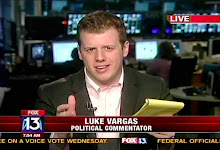The NCAA March Madness tournament officially tipped off this afternoon, and like every year, 65 teams from around the country are given the chance to take home the the biggest prize in college basketball. Fans realize the odds are stacked against Jackson State when they face off with Florida, but the upset is still technically possible. Imagine for a second that the NCAA were to change the rules of the tourney and:
-gave all 1-4 seeds a first round bye
-allowed the wealthiest sports programs to chose where and who they played, and gave them the opportunity to chose which primetime TV spot they'd prefer to be broadcast during
ESPN, along with the rest of "sportsnation" (which often times seems like more of a nation than the actual United States) would react with anger and protest until the rules were changed back. Teams would withdraw themselves from the tourney, and even the big school coaches would speak out against the new changes.
Now, there's no need to imagine, but understand for a moment the new trends that are defining the American primaries:
-frontrunner candidates benefit from earlier primaries as their initial reputation has less time to be challenged by lesser known individuals
-top-tier candidates will soon begin to pick and chose only the highest-grossing events to attend in the most revenue-producing states such as California, replacing the traditional election starting spots New Hampshire and Iowa.
The implications of such change don't ring with the same kind of fear as the NCAA changes do to many, but the new trend is very damaging to the way America choses its leaders. As it stands now, candidates such as Rudy Giuliani must make the tough choice between suring up support in the big states at the expense of facing an uphill battle in New Hampshire. If fifteen states move to "super Tuesday" primary day this election, Rudy and other big name candidatse could simply follow the money and media to California each and every day of the campaign and come out on top.
I'm hopeful that the next few months will still yield the kind of primary showdown that keeps the dark horse candidate in the race until the finish, but I fear for the future of the American electoral process. I don't believe that Dennis Kucinich or Ron Paul will ever win the presidency, but I like to think that at any given time, in a small town in the mountains of New Hampshire, that Ron Paul can speak to a town hall of people and win over their support while Rudy Giuliani tours a factory in Los Angeles or makes a televised speech.
No #16 seed has ever upset a #1. But the underdogs still score their points and they still put up a fight. Let's make sure that fighting underdog spirit is never taken away.
Subscribe to:
Post Comments (Atom)




No comments:
Post a Comment